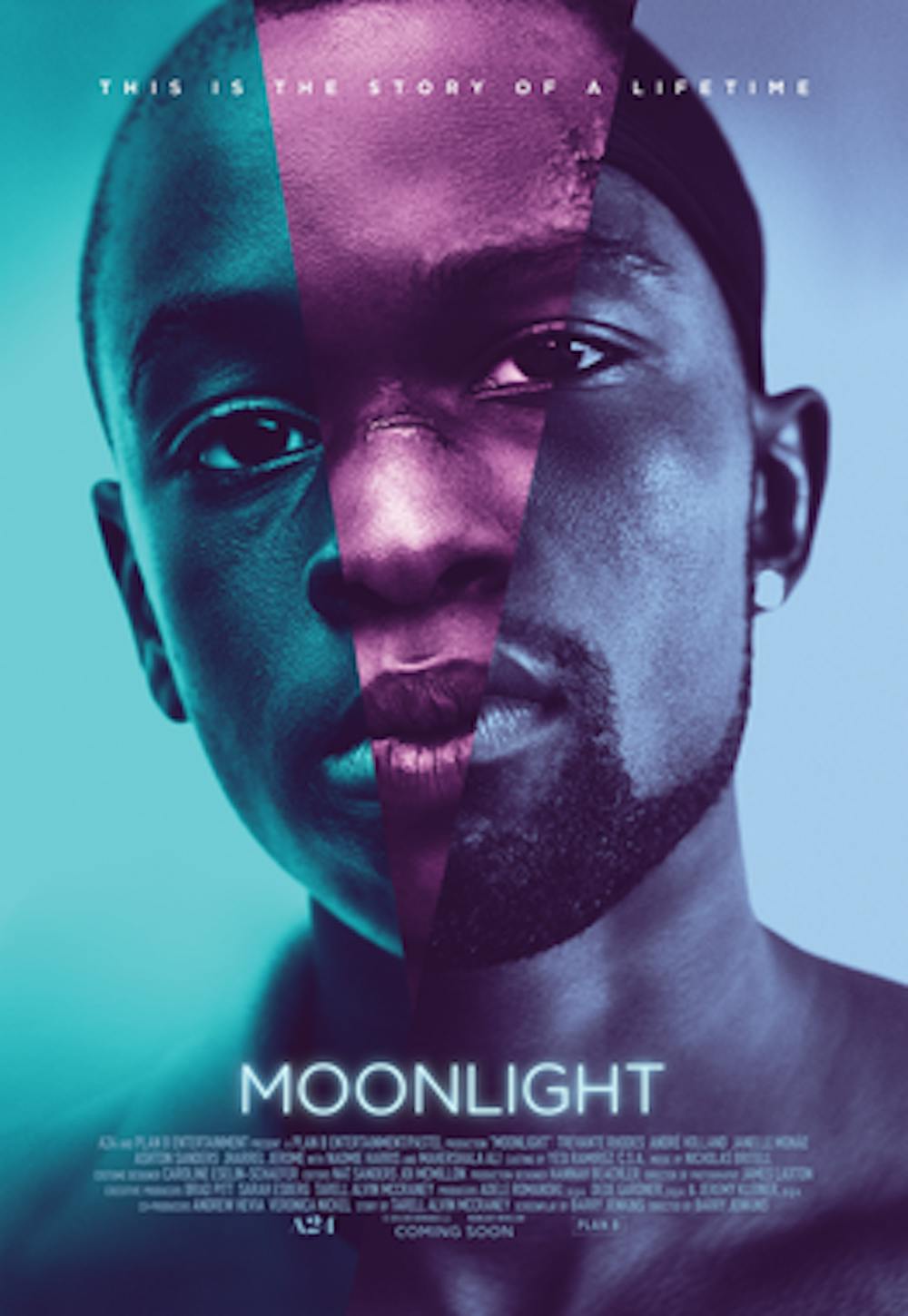Dominating the 2016-17 awards season and being highly touted for months, “La La Land” is potentially on path to an unprecedented Oscar night clean sweep. Though that film is lovely and technically dazzling, “Moonlight” deserves to win Best Picture.
“Moonlight” chronicles the life of Chiron (Ashton Sanders and Trevante Rhodes, respectively), a withdrawn black boy navigating his budding homosexuality in poverty-stricken Miami alongside a drug-addicted mother, a kindhearted classmate and an affectionate drug-dealing father figure. The film’s three vignettes coalesce into a coming-of-age story of someone too inhibited to assert his identity in the hyper-masculine world around him.
Director Barry Jenkins provides eloquent commentary on race, homosexuality and masculinity without ever compromising the unique, intimate character study at its core. He depicts critically underrepresented characters in cinema like Chiron with a mesmerizing level of compassion. By veering away from stereotypes of black masculinity, “Moonlight” refuses to sensationalize the struggles faced by queer men of color.
Chiron’s homosexuality and blackness strongly influence his identity without exclusively defining it. Despite telling a heartrending story about the power of empathy and fragile, transformative connections, “Moonlight” never oversimplifies or resorts to grandiose truisms. Jenkins gives a complex and multi-layered portrayal of Chiron’s budding identity that keeps viewers glued to the screen.
While “Moonlight” was not made with the intention of impressing Academy voters, it should win Best Picture simply because it’s a remarkable achievement in filmmaking. The performances alone are breathtaking, but paired with the plot are nothing short of incredible. With a gripping story rife with emotion, its legacy will live on for years to come ― which is, perhaps, more important than a golden statuette.





